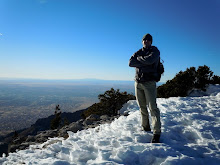This is a great one! Particularly relevent for all you recent grads! -Nick
Further Reading... http://www.news.com/8301-10784_3-9940361-7.html?tag=bl
The entertainment industry's controversial efforts to get universities to be more proactive about policing peer-to-peer piracy have begun to spread from Capitol Hill to the states.
Earlier this year, the U.S. House of Representatives approved a Hollywood-backed proposal buried in a higher education reauthorization bill that would require universities receiving federal financial aid funding to devise plans for "alternative" offerings to unlawful downloading--such as subscription-based services--or "technology-based deterrents to prevent such illegal activity."
That otherwise wide-ranging bill won't become law until House and Senate politicians agree upon a compromise version. Meanwhile, the debate over the proper role of higher education institutions in fighting piracy has shifted to some state legislatures.
On Thursday, what appears to be the first such proposal in the country became law in Tennessee--home to Nashville, the country music capital of the world. A similar measure is currently being considered in Illinois. And California held an "informational hearing" last month featuring a Recording Industry Association of America representative, although no legislation has been introduced there yet.
RIAA spokeswoman Cara Duckworth declined to divulge where else the industry may be planning to push such policies, but she insisted the group views new laws as a last resort.
"If we're asked to participate in conversations by lawmakers, of course we will," she said in an e-mail interview. "But we prefer to be working directly with schools on a collaborative approach to reduce theft."
Still, university administrators gathered at a policy conference in Arlington, Va., this week sponsored by the nonprofit group Educause, which represents higher education institution technologists, suggested they're bracing for the quiet appearance of new bills proposing what they view as overly burdensome and overreaching network management mandates.
"If there is a trend here anywhere, it's that these things tend to fly under the radar," Steve Worona, Educause's director of policy and networking programs, told conference attendees. "Let me alert you once again to raise the consciousness of whoever in your state is tracking (legislation)."
"Technological deterrents" vs. Copyright 101 That was the experience related by Thomas Danford, chief information officer for the Tennessee Board of Regents, a governance organization that covers 19 public colleges and universities inside the state. If it weren't for the close scrutiny of his organization's legislative committee, Tennessee universities may have been stuck with much less savory obligations related to managing peer-to-peer file sharers on their network, he said.
The original version of the Tennessee bill (PDF), which Danford said was penned by a local RIAA lobbyist, would have required universities to effectively play copyright cops on their networks. It dictated that they must employ "effective technology-based deterrents, to prevent the infringement of copyrighted works over the school's computer and network resources, including over local area and internal networks."
That requirement was problematic not only because of its cost, which Danford said was estimated at $14 million, but because many university administrators still question the effectiveness of filtering programs and other technological means designed to detect and block copyrighted works from being exchanged.
"I'm convinced that had we not had this (committee), they probably would've been able to get this through the state house before anyone caught wind of it," putting universities in the tough position of trying to fight the law after the fact, Danford said.
Monday, May 12, 2008
Subscribe to:
Post Comments (Atom)


No comments:
Post a Comment